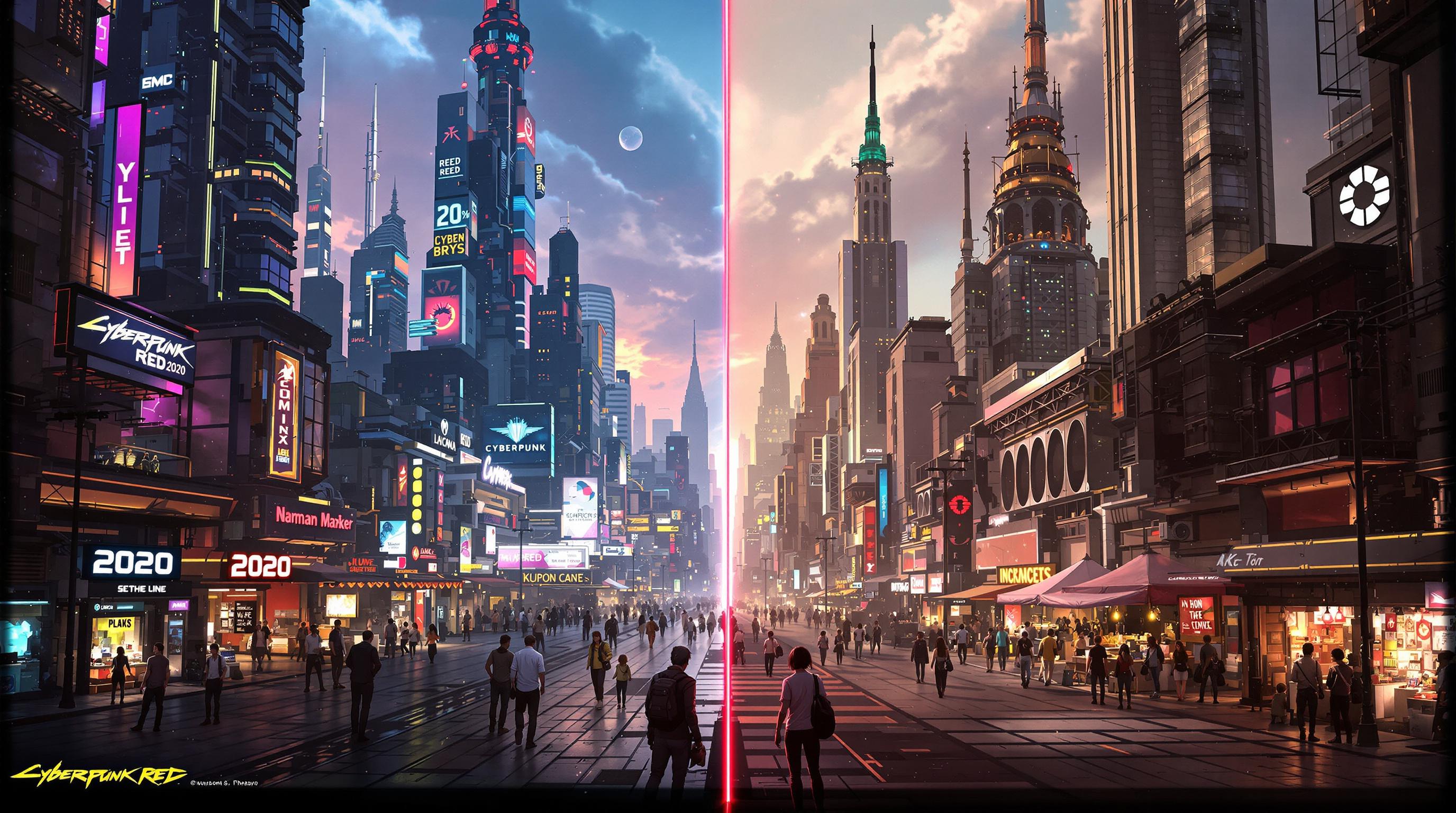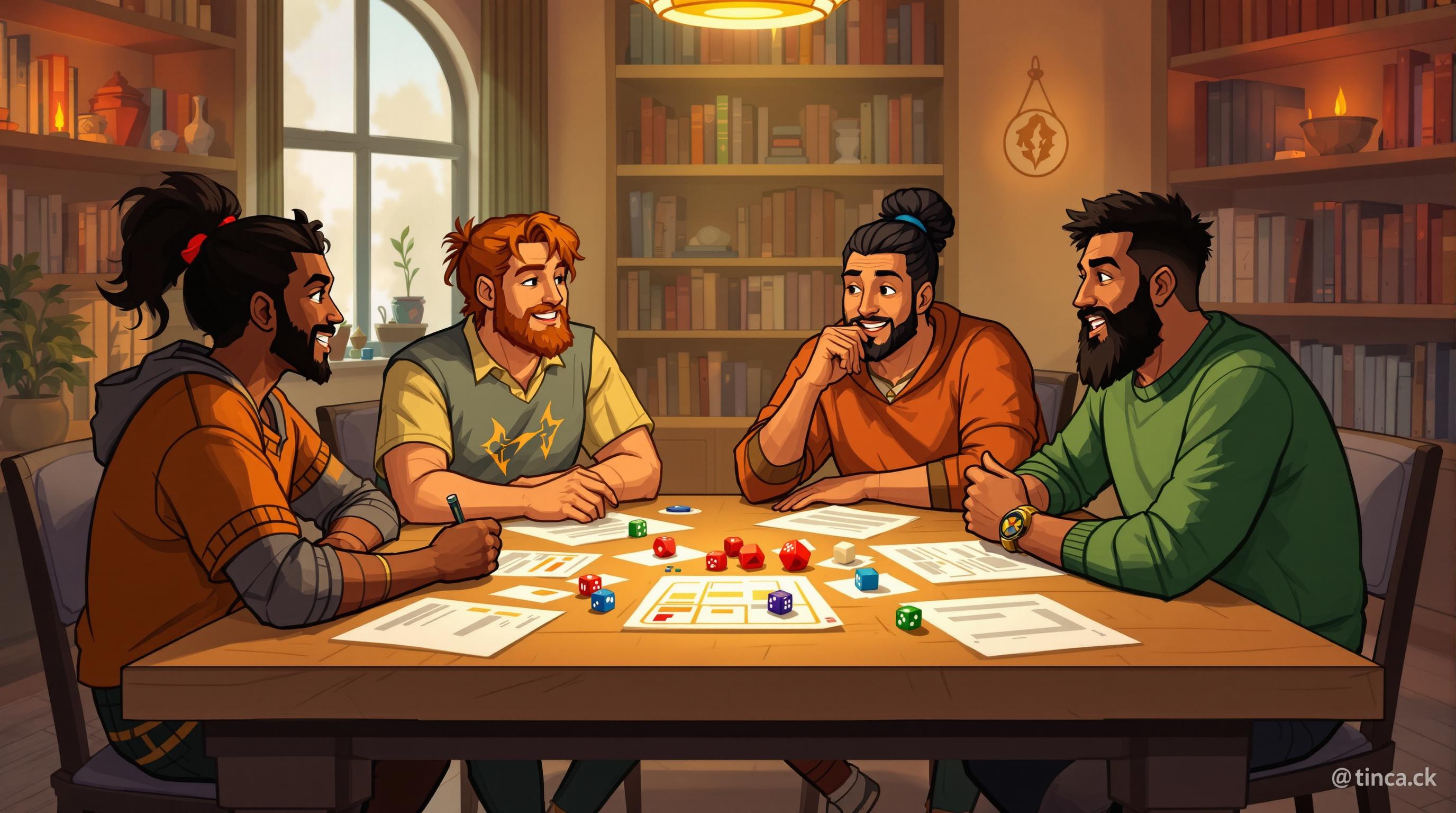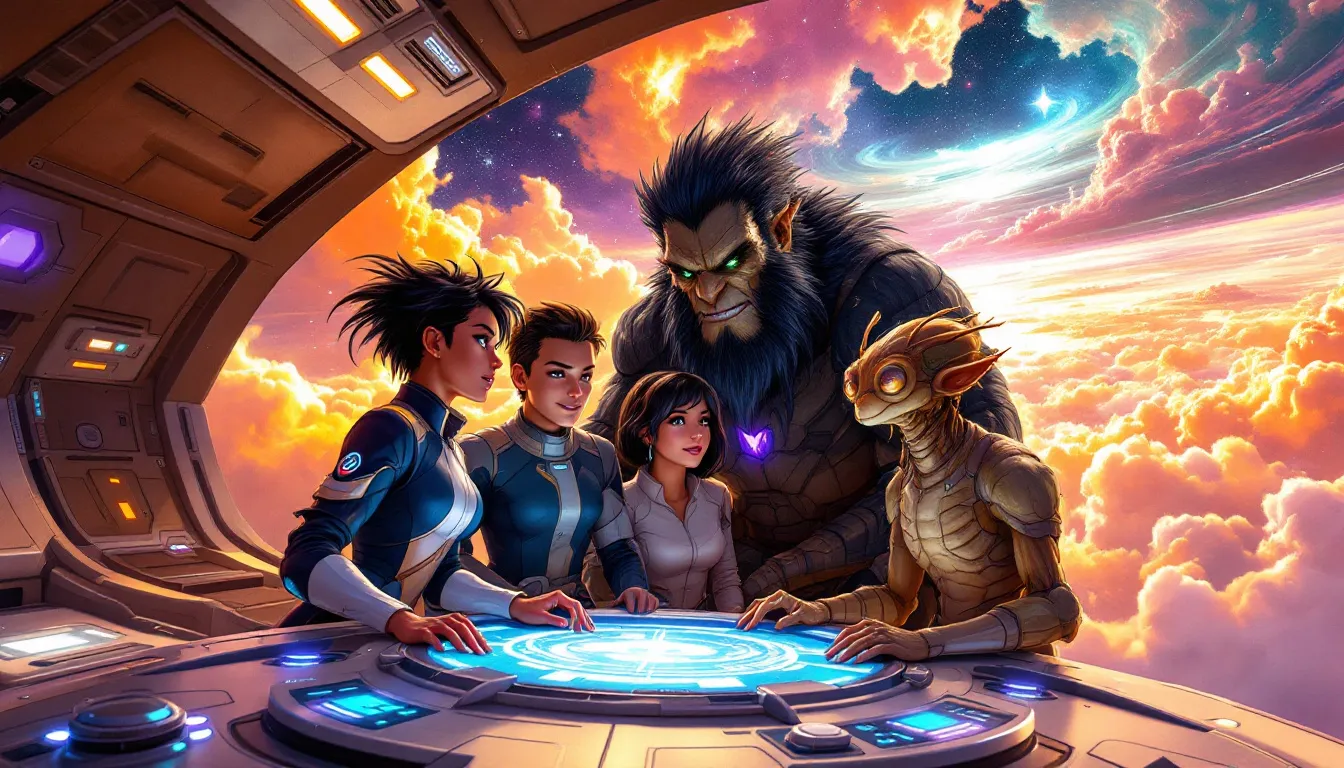RPGs (Role-Playing Games) have evolved from tabletop games to video games, podcasts, and even virtual reality, reshaping how stories are told interactively. Here's what you need to know:
- Core Elements: RPGs focus on role-playing, storytelling, and collaboration, forming the foundation of the genre.
- Origins: Tabletop RPGs like Dungeons & Dragons introduced collaborative storytelling, influencing all modern RPG formats.
- Video Games: RPGs expanded to video games with subgenres like Action RPGs (The Witcher 3), JRPGs (Final Fantasy XVI), Open World RPGs (Skyrim), and Story-Driven RPGs (Mass Effect).
- Other Media: RPGs now appear in movies, TV shows, podcasts, and live-play performances, bringing the genre to new audiences.
- Future Trends: VR, AR, and AI-driven storytelling are creating more immersive and adaptive RPG experiences.
Whether you're into tabletop classics or cutting-edge VR, RPGs continue to combine creativity, technology, and storytelling. Ready to explore? Check out resources like the TTRPG Games Directory for a curated guide to tabletop RPGs.
History & Evolution of RPGs | EXPLORED
RPGs in Video Games
RPGs have come a long way from their tabletop beginnings, finding a new home in video games with richer storytelling and gameplay.
Early Computer RPGs
In the late 1970s, computer RPGs took inspiration from tabletop mechanics. Titles like Akalabeth (1979) and Wizardry (1981) introduced key elements like character stats, turn-based combat, and dungeon exploration. These games laid the groundwork for how RPGs would function in the digital space.
Then came Ultima (1981), which pushed boundaries by offering persistent worlds and character progression systems. It proved that computers could deliver immersive RPG experiences that went beyond the limitations of tabletop gaming.
Current Video Game RPG Types
Today's RPGs have branched into several subgenres, each offering something unique:
| RPG Type | Key Features | Notable Examples |
|---|---|---|
| Action RPGs | Real-time combat with skill-based mechanics | The Witcher 3, Elden Ring |
| Traditional JRPGs | Turn-based battles and party management | Final Fantasy XVI, Persona 5 |
| Open World RPGs | Emphasis on exploration and player choice | Skyrim, Baldur's Gate 3 |
| Story-Driven RPGs | Focus on narrative choices and character relationships | Mass Effect, Dragon Age |
These subgenres showcase the diversity and depth of modern RPGs.
Tabletop vs Video Game RPGs
While rooted in the same genre, tabletop and video game RPGs differ in several ways:
| Aspect | Video Game RPGs | Tabletop RPGs |
|---|---|---|
| Storytelling | Pre-written narratives with branching options | Improvised, player-driven stories |
| Combat | Automated systems with visual effects | Imaginative, flexible tactics |
| Character Creation | Limited by in-game design options | Endless creative possibilities |
| Social Interaction | Scripted dialogue and choices | Open, free-form role-playing |
Video games bring faster feedback and visually engaging combat but often lack the creative freedom of tabletop RPGs. However, titles like Divinity: Original Sin 2 and Baldur's Gate 3 are blending the best of both worlds. These games incorporate flexible systems that echo the improvisational nature of tabletop adventures, showing how digital RPGs continue to innovate while staying connected to their origins.
sbb-itb-b8b00a5
RPGs in Other Media
RPGs have grown far beyond tabletop and video games, becoming a key part of various entertainment platforms.
Movies, TV shows, podcasts, and live performances now incorporate elements of role-playing games. Filmmakers and producers use features like deep character arcs, quest-driven plots, and immersive settings to create stories that feel interactive and collaborative.
Meanwhile, RPG podcasts and live-play shows have brought tabletop gaming to a wider audience. By showcasing actual play sessions, longer campaigns, and standalone adventures, they captivate both seasoned players and those new to the genre.
This expansion highlights how RPGs continue to shape storytelling across different forms of media.
New Directions in RPGs
RPGs are evolving, breaking past their usual limits with the help of new technologies that transform how stories are told interactively.
VR and AR RPG Games
Virtual reality (VR) and augmented reality (AR) are changing the game by creating deeply engaging environments. These tools allow players to step into worlds with a level of interaction that goes beyond what traditional RPGs offer.
The TTRPG Games Directory helps players stay updated on the latest developments in tabletop RPG trends.
Conclusion
RPGs continue to redefine how stories are experienced, blending tradition with cutting-edge advancements.
Key Takeaways
RPGs have evolved from the tabletop era to modern digital platforms, reshaping interactive storytelling along the way. While staying true to their storytelling roots, these games now offer richer engagement through digital and VR innovations.
TTRPG Games Directory: A Helpful Resource
The TTRPG Games Directory is an excellent tool for navigating the growing RPG world. Its database allows players to easily find games that match their preferences and play styles.
The Future of RPGs
RPGs are poised to further blend technology with storytelling across multiple platforms. Emerging technologies like virtual and augmented reality promise even more immersive experiences, while artificial intelligence could bring dynamic, player-driven narratives to life. Here are some upcoming trends to watch:
- Cross-platform integration: Better connectivity between digital tools and traditional tabletop gameplay.
- AI-driven storytelling: Narrative systems that adapt in real time to player choices.
- Immersive tech advancements: Expanding VR and AR capabilities for heightened engagement.
The genre's growth reflects its ability to adopt new technologies while keeping its focus on storytelling, character depth, and player choice. As RPG formats continue to intersect and evolve, players can expect even more engaging and varied experiences.


